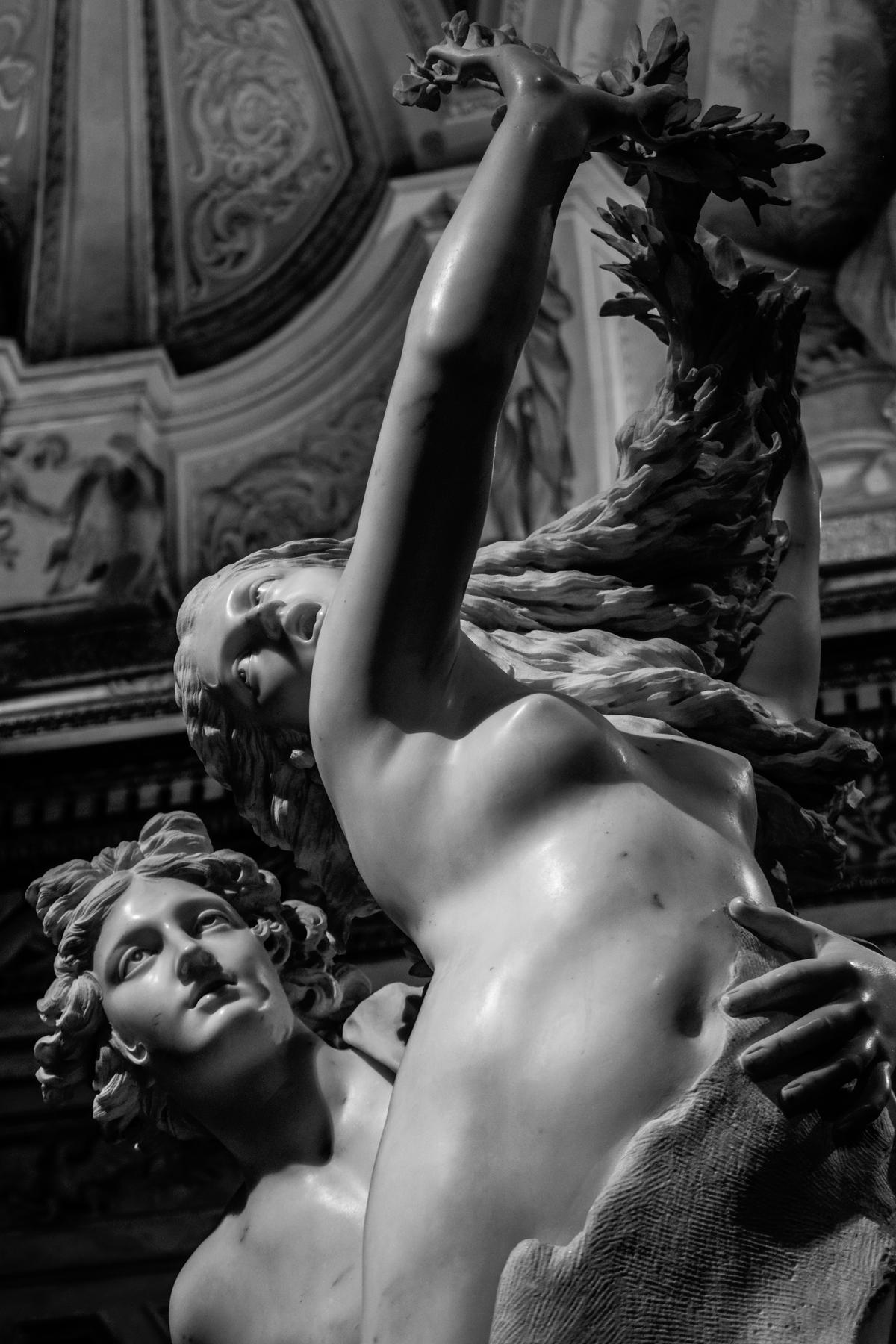Category: Greek Nymphs
-

Bolbe Greek Goddess Bio
Identity of Bolbe Bolbe, an enchantress of the waters tucked away in the lush landscapes of Thessalia, northern Greece, holds dominion over Lake Bolbe—a lesser-known chapter of the captivating world of Greek mythology. Unlike the buzz surrounding more spotlight-drenched deities, Bolbe carries a quieter allure, revered locally as a goddess-nymph whose story rings with the…
-

Greek Nymphs Starting with G
Genealogy and Origins of Nymphs Starting with G Gaia, the primordial deity embodying the Earth, is a formidable figure in Greek mythology. As the Mother of All, her presence looms large over the Greek pantheon. Marital ties to Uranus, the sky, thrust Gaia into the role of a unifying force between heaven and earth, producing…
-

Greek Nymphs Starting with G
Genealogy and Origins of Nymphs Starting with G Gaia, the primordial deity embodying the Earth, is a formidable figure in Greek mythology. As the Mother of All, her presence looms large over the Greek pantheon. Marital ties to Uranus, the sky, thrust Gaia into the role of a unifying force between heaven and earth, producing…
-

Top 5 Greek Myth Nymphs
1. Dryad: Guardians of the Forest Picture this: you're wandering through an ancient, whispering forest, and every tree around you isn't just alive in the usual sense—they're spirited, packed with personality thanks to the Dryads, the fierce forest protectors of Greek mythology. Emerging primarily from Percy Jackson's rivetingly adventurous tales, these nymphs aren't your typical…
-

Philyra Greek Mythology
Philyra's Origins and Family Philyra's status as a sea nymph wraps her story in layers of oceanic intrigue and divine drama. Born to Oceanus, the titan ruler of the sea, and Tethys, the titaness goddess of the primal sources of fresh water, Philyra swims into Greek mythology adorned with a lineage as deep and mysterious…
-

Nymph Arethusa Greek Myth
Origins and Family Arethusa isn't your average creek nymph you might stumble upon while wandering through Greek mythology. The details of her origins are a bit murky. Some say she's one of the fifty Nereids, daughters of the sea gods Nereus and Doris. However, most tales about her focus on her enchanting features and watery…
-

Greek Mythology: Glauce
Identity and Roles of Glauce Glauce claimed several roles in Greek lore, starting as an Arcadian nymph, one of Zeus's tender nurses. At Tegea, her reverence was etched on Athena Alea's altar, showcasing her early divine ties. Beyond her role as a caregiver to the top god, she played multiple parts across varied Greek myths—nymph,…
-

Exploring Auloniads
Identity of Auloniads Auloniads, often overshadowed by their more famous mythological counterparts, are intriguing nymphs of the valleys and pastures in Greek mythology. These ethereal entities embody the essence of the pastoral landscapes they inhabit, their presence an eternal testimony to Greek reverence for natural environs. Traditionally, nymphs, including the Auloniads, are depicted as protectors…
-

Naiads in Greek Mythology
Nature of Naiads Naiads were the spritely spirits of streams, rivers, lakes, and fountains in Greek mythology. These water nymphs were conceived as enchanting young women, ethereally weaving through the lines of ancient poems and blessing the curves of rivers. They primarily graced fresh water – a vital element to both nature and humans, embodying…
-

Meliae: Nymphs of the Ash Tree
Origins of the Meliae The story of the Meliae begins with a dramatic turn of events involving Uranus, the sky god, and his youngest Titan son, Cronus. Driven by a prophecy that he would be overthrown by his offspring, Cronus committed a grisly act. Armed with a sickle, he ambushed Uranus and castrated him. As…
-

Leuce: Nymph of the White Poplar
Leuce, the white poplar nymph acclaimed both for her loyalty and tragic tale, whispers in the dim shades hovering near the River Styx, where shadows both clutch and recoil from her touch. Enchanted with an aura that lulled stoic oaks and flirtatious zephyrs alike, Leuce transformed an ordinary corner of Hades into a murmuring realm…
-

Echo’s Tale: Love and Loss
Echo was once a nymph who lived deep within the woodland realms, a place where whispers travelled through the leaves and waves of chatter echoed across mountain stones. She was closer to the melodies of Earth than anyone could dream, entwined with secrets of rustling foliage and blooming flowers. Echo had a voice so enchanting…
-

Greek Goddess Parnassides
Origins of Parnassides The Parnassides are a group from Greek mythology associated with Mount Parnassus, a mountain in Central Greece. The name honors a figure named Parnassus, who was said to be the son of a nymph and Poseidon, the god of the sea. Mount Parnassus was considered sacred ground, recognized as the home of…
-

Myth of Nymph Lotis
Lotis and Priapus Incident In the tangled web of mythology, we find both horror and beauty. Picture the scene: a festive gathering of gods, everyone loosened up. Here lies Lotis, a nymph humbly rooted in myth. Resting under a tree's gentle cover, her dream-world was upended by the lustful Priapus. As myths often do, this…
-

Auloniads in Greek Mythology
Stepping into the serene landscapes of Greek mythology, we encounter the Auloniads, nymphs of the valleys and pastures whose stories are woven quietly into the fabric of ancient narratives. These ethereal beings, often overshadowed by their more famous mythological counterparts, offer a gentle reminder of the profound connections between nature, femininity, and the nurturing forces…
-

Hamadryads in Greek Mythology
Nature of Hamadryads In Greek mythology, Hamadryads are tree nymphs with a bond so tight to their designated trees, they are two sides of the same leaf. Unlike Dryads, who also frolic in forests but aren't tied to any single tree, Hamadryads embody the essence of the tree they inhabit. If the tree thrives, so…
-

Greek Mythology: Dryads
From the whispering groves of ancient Greece to the bustling energy of modern media, Dryads have captivated our imaginations as guardians of the natural world. These ethereal beings, rooted deeply in mythology, continue to weave their stories into the fabric of our cultural consciousness, bridging the gap between the ancient and the contemporary. Origins of…
-

Rhoeo: Greek Myth Nymph
The tapestry of Greek mythology is rich with stories that weave divine intrigue with human emotion, none more compelling than the tale of Rhoeo. Her story reflects the timeless struggles and triumphs of the human spirit. Identity and Myth of Rhoeo Rhoeo, a nymph in Greek mythology, is a symbol of resistance and maternal strength.…
-

Meliae: Nurturers of Ancient Groves
Meet the Meliae, the ash tree nymphs of Greek mythology, sprouting straight from the blood that fell from the titan Uranus when he was dethroned by his ambitious son Cronus. You'd think that such a grand origin would bring them central roles in mythic dramas yet they often flutter about in the edges of the…
-

Greek Naiads Mythology
The allure of Greek mythology often lies in its ability to weave the divine with the earthly, presenting characters that not only captivate our imaginations but also offer a mirror to our own experiences. Among these mythological figures, the Naiads stand out, embodying the life-giving and sometimes perilous nature of water. Nature of Naiads Naiads,…
-

Daphne Greek Myth
The tale of Apollo and Daphne from Greek mythology invites us into a world where the boundaries between the celestial and the terrestrial blur, reflecting deeper truths about human nature and relationships. Daphne's Origin and Myth Daphne, meaning laurel in Greek, is the daughter of either Peneus, the river god of Thessaly, or Ladon from…
-

Oceanids in Greek Mythology
Origins of the Oceanids The Oceanids are the prodigious daughters of Oceanus and Tethys, two Titan deities in Greek mythology. Oceanus wasn't just another god—he was the earth-encircling river, an elemental force released at the dawn of the cosmos. His consort, Tethys, personified the subterranean waters that nourished the earth. Together, they gave birth to…
-

Greek Nymph Syrinx Myth
Syrinx's Identity and Mythological Role Syrinx, a celestial yet earthly character from Greek mythology, embodies the enchanting tales of divine beings intertwined with nature. The daughter of the river god Ladon and a follower of Artemis, Syrinx represents the purity and beauty associated with freshwater locales. Naiads like her are portrayed as personifications of the…
-

Hesperides in Greek Myth
Origins and Parentage The parentage of the Hesperides varies across ancient texts. In Hesiod's version, they are daughters of Nyx, the night herself, without any father mentioned. This account emphasizes the mystical aspects of evening, adding a dose of intrigue to the Hesperides' narrative. In Diodorus' works, the sea nymph Hesperis and the Titan Atlas…
-

Greek Myth Io
Io's Transformation and Zeus's Role Io's tragic transformation into a heifer was a desperate act by Zeus to protect her from the suspicions and wrath of Hera, his wife. In Greek mythology, often driven by jealousy and revenge, deities like Zeus wield their power in unpredictable ways. For Zeus, turning Io into a cow was…